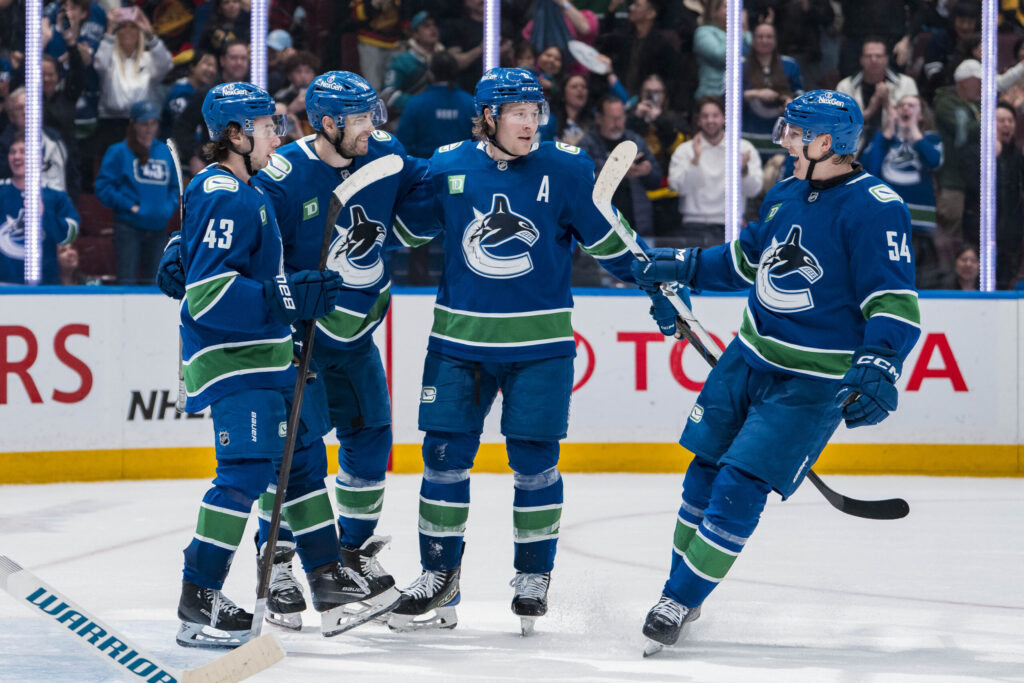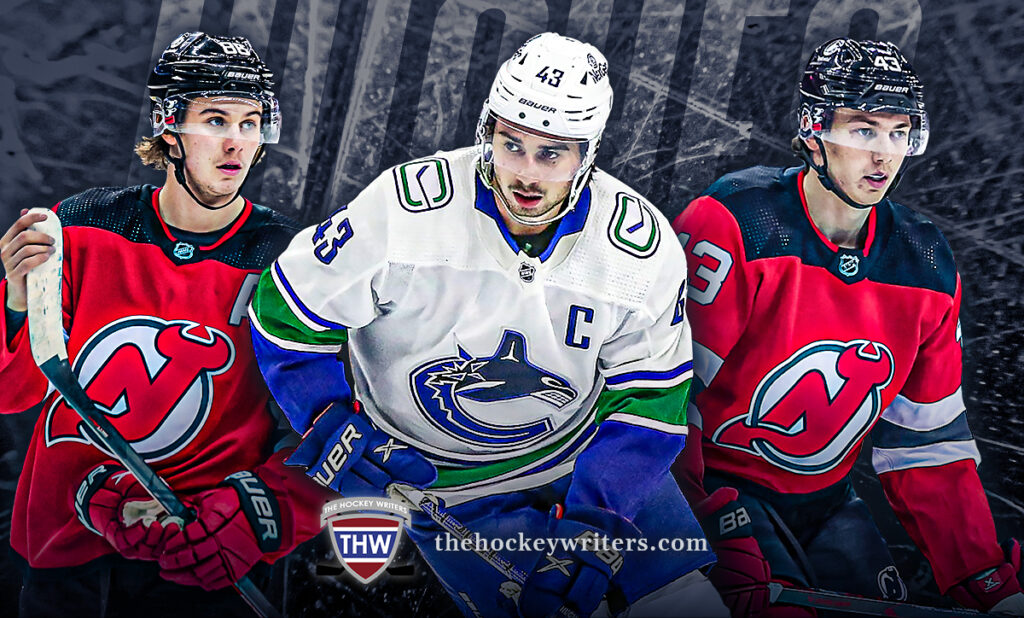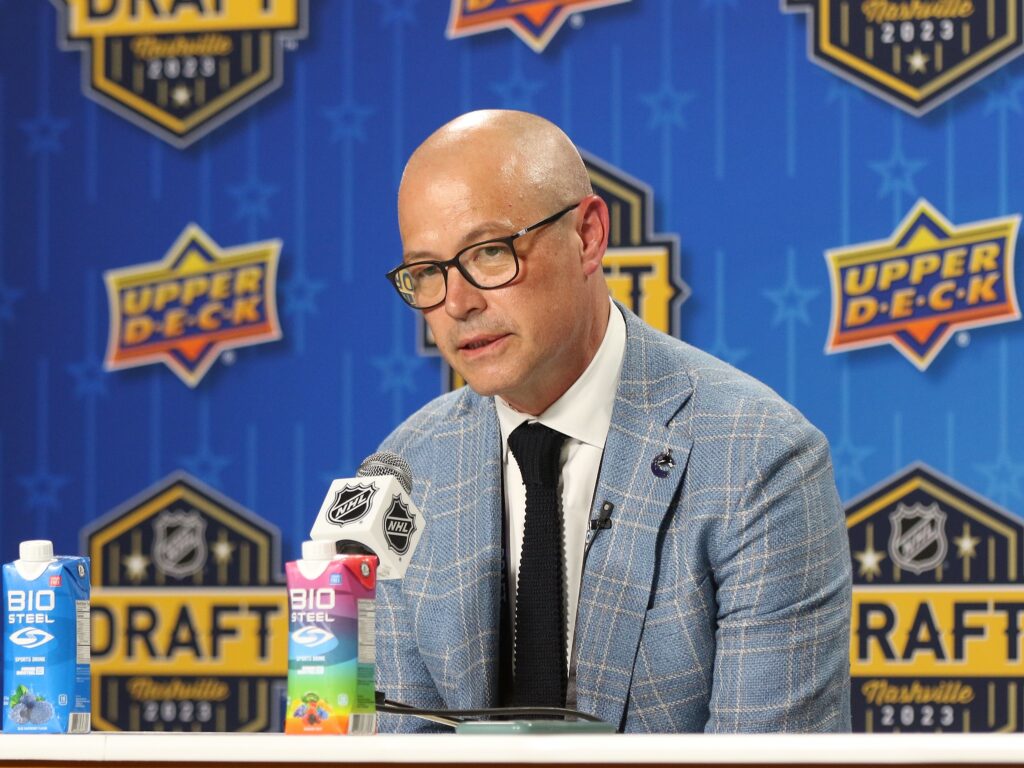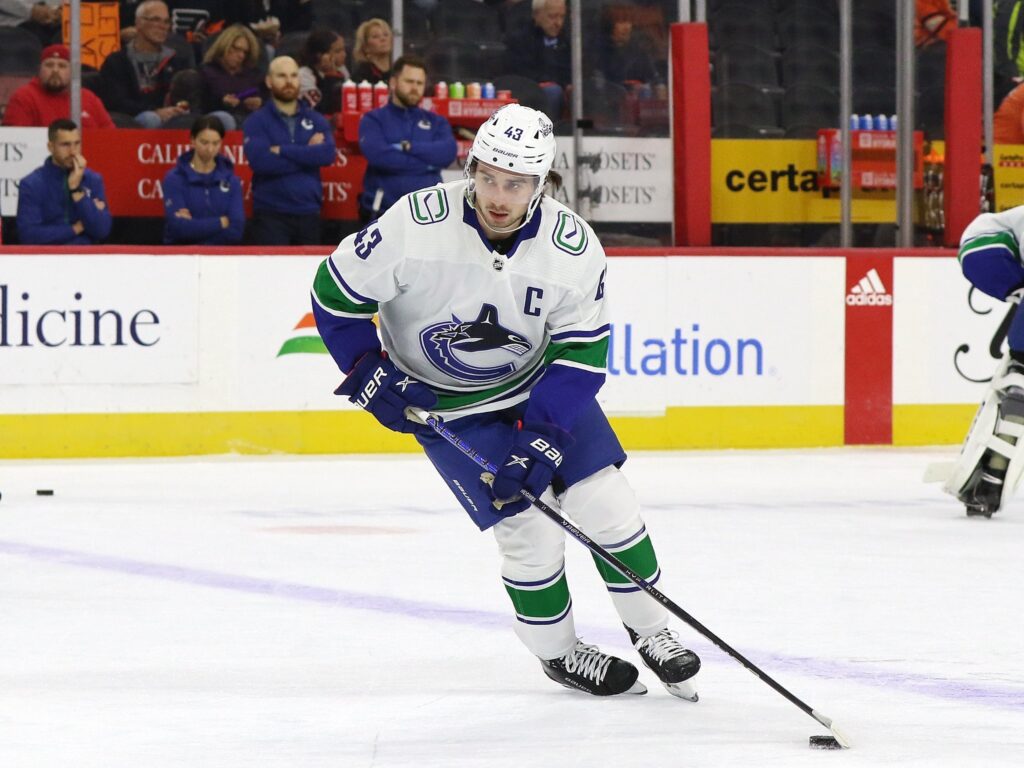He’s the captain. He’s a Norris Trophy winner. He is, for all intents and purposes, the engine that drives the Vancouver Canucks. Quinn Hughes is everything a modern franchise could want in a number one defenceman: an elite skater, a power-play savant, and a leader who just put together one of the most dominant seasons from a blueliner in recent memory. And yet, an undercurrent of anxiety is beginning to ripple through the fanbase on the West Coast. While Hughes still has two full seasons remaining on his very team-friendly $7.85 million AAV contract, the conversation about his future is already reaching a fever pitch.
The situation is far more complex than a simple contract negotiation. It’s a confluence of family ties, franchise ambition, and a peculiar quirk in the NHL’s Collective Bargaining Agreement that has created a high-stakes, 76-day window that could define the next decade of Canucks hockey. Hughes isn’t eligible to put pen to paper on an extension until July 1, 2026, but the clock has already started ticking.
Also on the EDGE – Closing Loopholes and Changing the Game: A Deep Dive into the NHL’s New CBA Era
The Calm Before the Storm
To his credit, the captain is playing it cool. Publicly, Hughes is saying all the right things. He’s “very present,” focused on the upcoming season, and keenly aware that he can’t sign anything for another year. He brushes off the external chatter as “noise,” a distraction he’s learned to manage as a team leader. This is the polished, professional response you’d expect from the face of a franchise.
But digging a little deeper into his comments reveals the mindset of a hyper-competitive athlete. Labelling the Canucks’ previous season a “failure” speaks volumes. This isn’t a player content with individual accolades; he’s driven by a desire for team success. He’s motivated to “bring his best, be a great leader, and help his team make the playoffs.” This singular focus on winning is a double-edged sword for the Canucks. On one hand, it’s exactly what you want from your captain. On the other, it puts immense pressure on management to build a legitimate contender around him. If the team stagnates or takes a step back over the next two seasons, Hughes’s desire to win could easily lead him to look elsewhere.
Subtly, he also noted that two of his “best buddies,” Brock Boeser and Conor Garland, recently committed long-term to Vancouver. It’s a small but significant tell—a nod to the fact that he values the room and the core group. But friendships only go so far when championship aspirations and generational wealth are on the line.

The Brothers Hughes Conundrum
The elephant in the room, of course, wears the sweater of the New Jersey Devils. The speculation linking Quinn to the Garden State has been a persistent whisper for over a year, but it roared back to life recently, thanks to a comment from former NHLer Ryan Whitney on the popular Spittin’ Chiclets podcast. Whitney stated he’d heard Hughes would end up with the Devils in 2027, the year he’s slated to become an unrestricted free agent.
This isn’t just baseless media chatter. The pull is obvious and powerful: the chance to play with his two younger brothers, superstar center Jack and burgeoning defenceman Luke. The idea of uniting the three Hughes brothers on one team is a compelling narrative, a hockey marketer’s dream, and a deeply personal ambition. It’s a threat so credible that Canucks management, specifically Jim Rutherford, has publicly acknowledged the possibility, citing Quinn’s expressed desire to play with his siblings at some point in his career.

For Canucks fans, this is the nightmare scenario. It transforms the negotiation from a simple question of money and term into an emotional and familial tug-of-war. Vancouver can offer a rabid fanbase, a great city, and a boatload of cash, but it can’t offer Quinn the chance to share a locker room with Jack and Luke. That’s New Jersey’s unmatchable trump card.
Seventy-Six Days in September
Compounding the pressure is a looming deadline dictated not by contract expiration, but by the league’s evolving labour agreement. The transition from the old CBA to the newly ratified one has created a critical, one-time window for teams signing players to extensions.
Here’s the breakdown: under the old rules, which are being phased out, a player could sign an eight-year extension with his current team. Under the new CBA, that maximum extension length is being reduced to seven years. According to hockey insider Frank Seravalli, there is a hard deadline for a player to sign a deal under the old structure. That date is Sept. 15, 2026.
Let’s map out the timeline. Quinn Hughes becomes eligible to sign an extension on July 1, 2026. This means the Canucks have precisely 76 days—from July 1 to Sept. 15—to sign their captain to an eight-year deal. If a contract isn’t finalized by that mid-September deadline, any extension he signs thereafter can only be for a maximum of seven years.

That eighth year is monumental. For the player, it represents an extra year of guaranteed, life-altering money and security. For the team, it’s a crucial tool for lowering the average annual value (AAV) of a massive contract, providing precious cap flexibility to build a winning roster around their star. Losing the ability to offer that eighth year puts the Canucks at a significant disadvantage.
This 76-day period is poised to become a pressure cooker. If Hughes isn’t signed by Sept. 16, 2026, the trade rumors and speculation will explode. It will be seen as a clear signal that the captain is keeping his options open and seriously considering testing the open market in 2027. Every day that passes in that window without a signature will ratchet up the anxiety in Vancouver tenfold.
Also on the EDGE – Canucks’ 5-Year Outlook: Can a Fortress on the Blue Line Save a Franchise Adrift?
The Eight-Figure Question
When the time does come to talk numbers, the discussion will start at a very high altitude. As a Norris Trophy winner entering his prime, Hughes is expected to command a salary well into eight figures. Projections suggest that when his new deal kicks in for the 2027-28 season, he will almost certainly be the highest-paid defenceman in the entire league. We’re talking about a contract that will likely start with a “1” and maybe even a “2” or “3” after it.
The rapidly rising salary cap adds another layer of intrigue. Some have speculated that we may see a league-wide trend toward shorter-term deals—four or five years—as players look to bet on themselves and cash in again when the cap is even higher. However, the unique 76-day window to secure an eight-year pact makes that path less likely for Hughes. The security and total value of that maximum-term deal will be incredibly difficult to turn down.
For the Canucks, the challenge is clear. They must not only meet Hughes’s financial demands but also demonstrate, unequivocally, that Vancouver is a place where he can win. The 2025-26 season has now become more than just another campaign; it’s an audition. It’s the front office’s final, best chance to prove to their captain that the grass isn’t greener in New Jersey.
While Quinn Hughes says he’s focused on the present, everyone knows the future is barreling down on the franchise like a freight train. A family’s dream, a CBA quirk, and the ambitions of a superstar have all converged to create a countdown clock in Vancouver. They have two seasons to build a winner and 76 days to seal the deal. The stakes couldn’t be higher.
Created with the aid of Gemini AI
